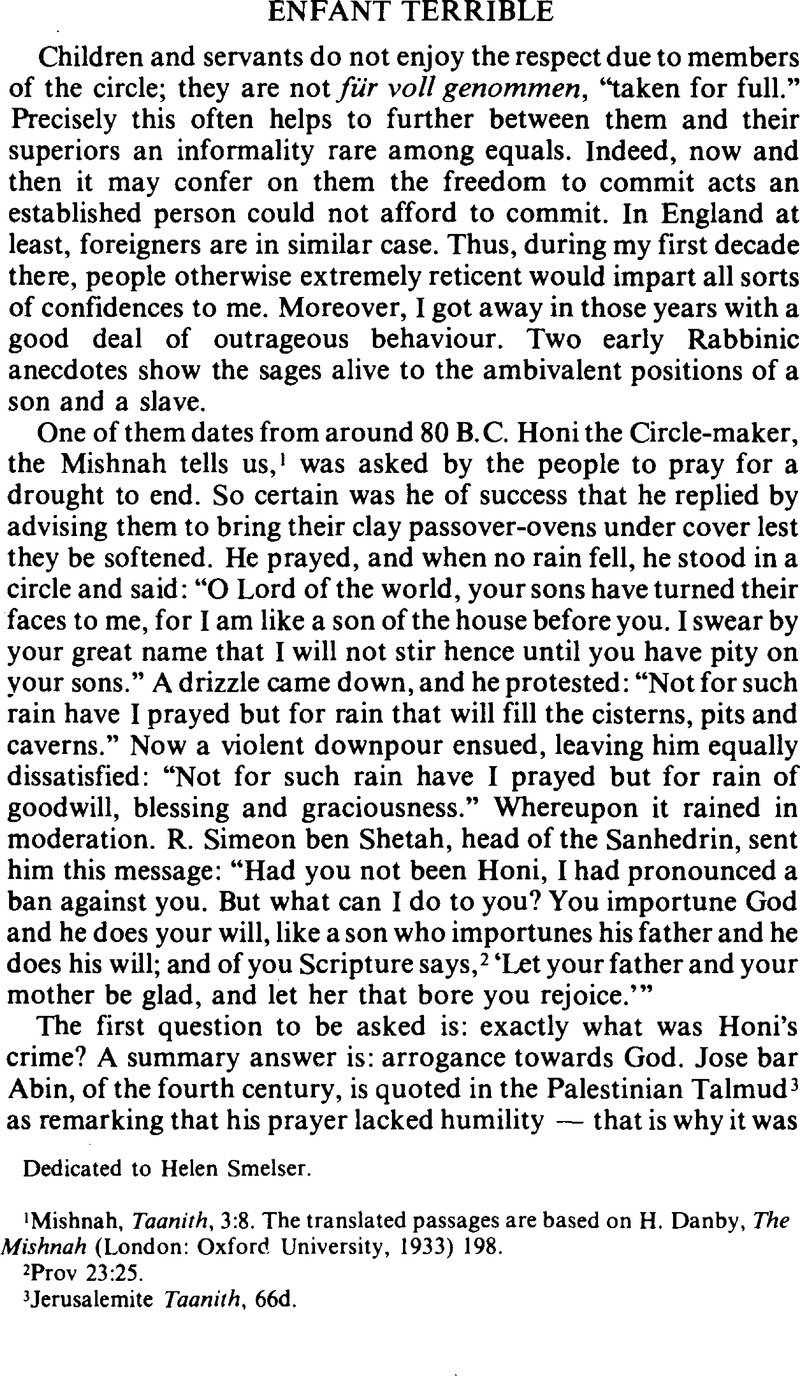Published online by Cambridge University Press: 10 June 2011

1 Mishnah, Taanith, 3:8. The translated passages are based on Danby, H., The Mishnah (London: Oxford University, 1933) 198.Google Scholar
2 Prov 23:25.
3 Jerusalemite Taanith, 66d.
4 Babylonian Taanith, 23a.
5 1 Kgs 17:1.
6 See, above all, Vermes, G., Jesus the Jew (New York: Macmillan, 1973) 69ff., and esp. 80f.Google Scholar
7 Babylonian Berakoth, 19a.
8 Mishnah, Aboth, 4:12.
9 Gen 31:43.
10 Tosephta, Sanhedrin, 8:3; Jerusalemite Sanhedrin, 22b; Babylonian Sanhedrin, 37b. Mekhilta on Exod 23:7 names his contemporary Judah ben Tabai instead of him.
11 Deut 19:4.
12 Literally, “with this man”; see Daube, D., Collaboration with Tyranny in Rabbinic Law (London: Oxford University, 1965) 426.Google Scholar
13 From Rashi through Obadiah di Bertinoro to Baneth, E., Mischnajot (with German translation and commentary), vol. 2, Moed (3rd ed., Basel: Victor Goldschmidt, 1968) 426.Google Scholar
14 See Daube, D., The New Testament and Rabbinic Judaism (London: Athlone, 1956) 125Google Scholar; idem, “Pauline Contributions to a Pluralistic Culture,” in Jesus and Man's Hope, Pittsburgh Festival on the Gospels 2 (Pittsburgh: 1971) 230Google Scholar; Barrett, C. K., A Commentary on the First Epistle to the Corinthians (New York: Harper, 1968) 80.Google Scholar
15 Babylonian Berakoth, 34b.
16 Literally, “ben Zakkai,” cp. above, n. 12. Why “ben Zakkai” only, without “Johanan”? Possibly by way of self-depreciation; cp. Babylonian Sanhedrin, 41b.
17 1 Kgs 18:42.
18 See, e.g., M. Simon, Berakoth (Soncino translation ed. by I. Epstein: 1958) 216.
19 Bornstein, D. J. (Encyclopaedia Judaica 5 [1930] 274) seems to be uncomfortable about this: Hanina, he writes, studied for a while under Johanan, war jedoch damals bereits berühmt, “though he was then already famous.”Google Scholar
20 See Babylonian Talmud, Codex Munich (95), Facsimile (1971) 289; noted in Goldschmidt, L., Der babylonische Talmud (Berlin and Leipzig: Verlag Biblion, 1897) 130.Google Scholar